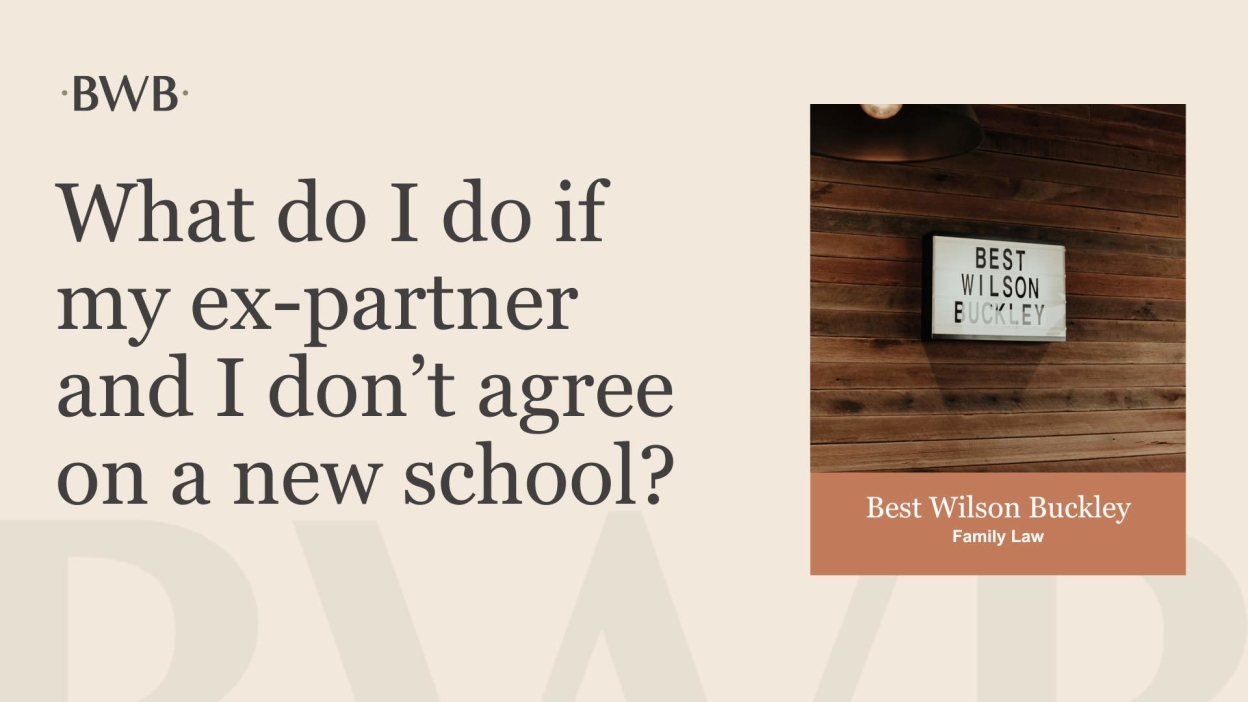What do I do if my ex-partner and I don’t agree on a new school?
By Best Wilson Buckley Family Law |03 November 2020 |Parenting Arrangements and Disputes-Articles

With term 4 now well underway, parents of children teetering on the brink of high school are starting the process of considering the next steps in the child’s education (if they haven’t already).
Just like other important decisions about children, the selection of a school (at any age) is a matter that needs to be agreed by both parents. This is regardless of who the child lives with or how long the child spends with each parent.
This is due to both parents having parental responsibility for their children pursuant to the Family Law Act. The Family Law Act establishes a default position whereby each parent has parental responsibility (unless otherwise ordered by the court). Parental responsibility means all the duties, powers, responsibilities and authority which, by law, parents have in relation to children. This includes not only day to day decisions (such as what the child should eat, what the child should wear and their everyday activities) but also long-term decisions (such as education, health and religion).
Parental responsibility is an obligation that must be respected and is not something that can be ignored.
Understandably, it can lead to difficulties when parents do not agree on what they believe should happen.
Well, we disagree – what happens now?
If you can’t agree, the Family Court may need to make a determination. The court can be asked to deal with any single application concerning children as a “specific issue” and make orders it feels appropriate in the circumstances.
When the court considers matters in relation to a child’s schooling, it has to assess what is in the best interests of the particular child in question (given their specific needs). This means the choice of the best school for a child will be based on the school’s academic record, extra-curricular activities and the way the school deals with any additional needs the child has. Generally (and fortunately), these are the same things parents consider when choosing a school for their child.
The court is required to consider all the relevant circumstances and weigh these up when coming to a decision. Where the differences between the schools are about whether to commence or continue with private schooling (where you are required to pay fees), the court will undertake an analysis of the parents’ financial resources.
What should you do if you are trying to agree?
Start the discussion by emphasising the positives that are important to your child rather than focusing on particular schools themselves (and why you make like that school). Make sure the qualities you are focused on are things that really matter. For example, if your child doesn’t enjoy sport, it’s unlikely you’ll win points on the basis your preferred school has an amazing sporting program. It is important to:
- - Do your homework and be objective – you need to know everything about the schools being considered. This includes the positives and negatives of each school.
- - Get legal advice – it’s important to know what the court would consider and it can help to talk things through with someone who’s not connected to the situation.
- - Avoid delay –while the court can act quickly to deal with a specific issue, it does not take kindly to parents trying to bring matters before the court at the final hour. If you can’t agree, it’s important you seek legal advice early so enrolment applications can be made in time before any school deadlines.
If you would like to discuss your position in more detail, please don’t hesitate to contact a member of our Brisbane, Ipswich, North Lakes, Toowoomba or Dalby offices today by phoning 07 4639 0000 or emailing us at [email protected] team at Best Wilson Buckley Family Law.